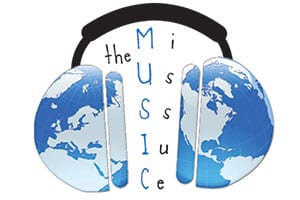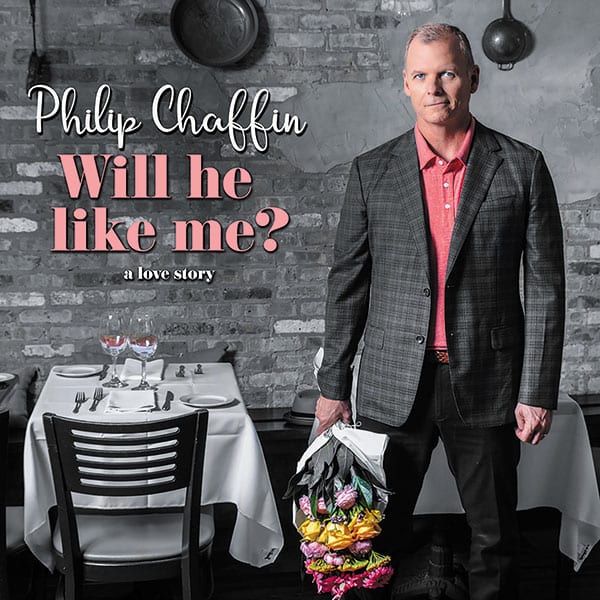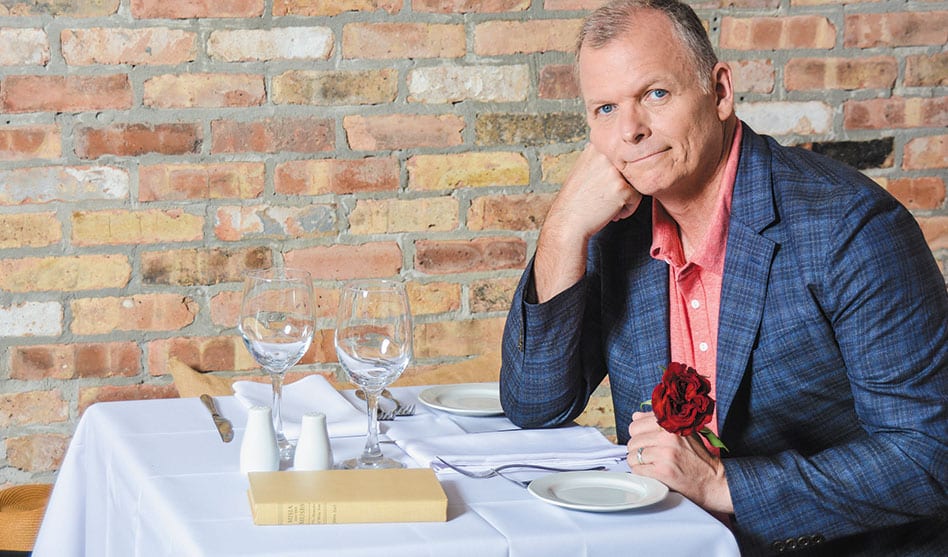Singer Philip Chaffin reimagines songs from a queer perspective
 Will He Like Me? (PS Classics), the new album by gay singer Philip Chaffin, asks a musical question to which the answer is a resounding yes. The song cycle, comprised of a series of songs usually sung by women to men, takes on a profound meaning when sung by a man without changing the pronouns. After hearing Chaffin sing songs such as “Lovely, Lonely Man” (from Chitty Chitty Bang Bang), “Tom” (from Hello Again), “Happiness Is A Thing Called Joe” (from Cabin In the Sky), and the title tune from She Loves Me, you will probably never listen to them in quite the same way again.
Will He Like Me? (PS Classics), the new album by gay singer Philip Chaffin, asks a musical question to which the answer is a resounding yes. The song cycle, comprised of a series of songs usually sung by women to men, takes on a profound meaning when sung by a man without changing the pronouns. After hearing Chaffin sing songs such as “Lovely, Lonely Man” (from Chitty Chitty Bang Bang), “Tom” (from Hello Again), “Happiness Is A Thing Called Joe” (from Cabin In the Sky), and the title tune from She Loves Me, you will probably never listen to them in quite the same way again.
— Gregg Shapiro
Dallas Voice: The album is subtitled “a love story.” How much of it is a reflection of your own love story with your husband Tommy Krasker? Philip Chaffin: Tommy and I had our first date in 1993, and we’ve been together ever since. We definitely poured 25 years of our shared lives into this album. As we developed the album, we knew we wanted it to be more than just a collection of songs. We wanted it to be a journey — a gay man’s journey. We knew we wanted to start with a first date and a first relationship and a first break-up, and then move through new experiences and new relationships. We wanted to hit some key moments that Tommy and I both related to, that we hoped others might, too. The time in your life when you think, “I’m never going to find the right guy. I’m just going to have fun.” The time when you try to settle down and your libido trips you up, and you mess it all up. And although the album wasn’t really autobiographical, we definitely knew that near the end, the singer was going to find true love when he least expected it, and that was definitely true for the two of us. That part — finding true love after a whole lot of trying — is absolutely about us!
Your new album is described as “a re-imagining of the Great American Songbook for the post-marriage-equality era.” Why was now the right time to release it? I can’t imagine releasing this album even 10 years ago — so much has changed. We started planning this album in 2013. At that time, marriage equality was still two years away. But New York State, where we lived, was allowing same-sex marriage, and Tommy and I had gotten married in 2012. The whole idea of the album was a celebration of equality, and marriage equality in particular. It’s always been a convention that when you sing the Great American Songbook, women sing about men, and men sing about women, and you adjust the pronouns accordingly. But the impulse for this album was: what if we took these songs designed for women, and didn’t change the pronouns? What if we simply sang them from a gay man’s point of view — from our point of view? It was very exciting to imagine singing songs in a way that I honestly wouldn’t have imagined singing them just a decade ago — and in fact, because so many of the songs we chose mention “my husband,” it’s something I couldn’t have done a decade ago. It felt incredibly liberating.
 With so much music to choose from, what can you say about the song selection process? I always gravitate towards the really obscure, and Tommy has to remind me that familiar is good, too [laughs]! But here, I think I was more willing to include familiar material because I knew I wasn’t presenting it in a familiar way, or a familiar setting. Even the familiar songs felt so fresh to me. I think the moment we first thought of — and sang through — “Mister Snow” was one of my favorite moments in this whole five-year journey. We always knew the first song on the album, the first date, was going to be “Will He Like Me?” But then we wanted a song where the singer reflected on that date, and imagined a shared future. A moment where he really jumped in with his heart. And of course, it had to be a moment — as with all the songs on the album — that was designed for a woman to sing, so it was a tall order. But then Tommy came up with the idea of “Mister Snow.” He ran to our music library and pulled out his piano-vocal score of Carousel, and we sat at the piano, and he played and I sang. And it was so exhilarating to sing: one of those sweeping long-lined ballads I love so much. Again, it was everything we wanted to do with this album. Before marriage equality, no guy was singing “when I marry Mister Snow.” Honestly, the first time I sang those lines, I burst into tears. It was incredibly moving to me.
With so much music to choose from, what can you say about the song selection process? I always gravitate towards the really obscure, and Tommy has to remind me that familiar is good, too [laughs]! But here, I think I was more willing to include familiar material because I knew I wasn’t presenting it in a familiar way, or a familiar setting. Even the familiar songs felt so fresh to me. I think the moment we first thought of — and sang through — “Mister Snow” was one of my favorite moments in this whole five-year journey. We always knew the first song on the album, the first date, was going to be “Will He Like Me?” But then we wanted a song where the singer reflected on that date, and imagined a shared future. A moment where he really jumped in with his heart. And of course, it had to be a moment — as with all the songs on the album — that was designed for a woman to sing, so it was a tall order. But then Tommy came up with the idea of “Mister Snow.” He ran to our music library and pulled out his piano-vocal score of Carousel, and we sat at the piano, and he played and I sang. And it was so exhilarating to sing: one of those sweeping long-lined ballads I love so much. Again, it was everything we wanted to do with this album. Before marriage equality, no guy was singing “when I marry Mister Snow.” Honestly, the first time I sang those lines, I burst into tears. It was incredibly moving to me.
A majority of the songs on the album are from the 1960s. What do you think that says about the love songs written during that period? You know, I had never noticed that! But Tommy and I both grew up in the ’60s — I can’t imagine that didn’t influence our song choices. You bring yourself to every album you do. If you don’t, what’s the point? I confess, in the five years between our getting the idea for the album and our actually releasing it, there were a lot of times that we thought, “Aww, shoot, someone is going to beat us to it.” Because it seemed like such a timely — and sort of inevitable — idea. But the truth is, if some other singer had made this album, he wouldn’t have made this album. This album is about me and Tommy, and our likes and dislikes, and our sensibilities, and no one else was going to make this album. And I suspect we gravitated towards a lot of songs from the ’60s because that’s when we developed a love for American popular song and Broadway. That’s when that music became a part of our lives. And let’s face it, there were so many amazing writers at that time — I guess I include more mainstream ones like Bock & Harnick, and Cy Coleman and the Sherman Brothers on the album, plus lesser-known ones like Erwin Drake and John Clifton. It was a pretty heady time for love songs!
Food comes into play on “Cooking Breakfast for the One I Love” and “But I Could Cook.” Is the quickest way to a man’s heart through his stomach? It has been for me! There is indeed an awful lot about cooking on the album — that’s one of my passions. My love of cooking actually goes back to my early days dating. When I was in college, there was a guy named Jesse, whom everyone wanted to go out with. Of course they did: he was handsome, smart, funny and talented. He was also always hungry. I figured that if I wanted to date him, my best shot was to cook for him. Except all I knew how to cook at that time was steak and potatoes — and cinnamon rolls. But I taught myself to cook, and grew to really love it. And thus, all the cooking songs and references on the album; that’s who I am. Those are the songs I related to, that I could infuse with my own spirit. And with “Cooking Breakfast,” which is an old Fanny Brice song, that’s exactly the kind of thing never designed for a man to sing. And with “But I Could Cook,” which talks about acquiring husbands for the money they’ll leave you, that’s the kind of song a man never could sing, until very recently.
Who is a better cook: you or Tommy? Tommy can’t even boil water. There are lots of things he’s way better at than — many, many things — but when it comes to cooking, that’s my domain! And I love it. Nothing makes me happier than cooking something new for Tommy, and having no idea how it came out, and hearing him say — as he often does — “that’s the best thing you’ve ever made.”
You made a point of including “forgotten gems” such as “Who Gave You Permission,” from Queen of the Stardust Ballroom and the title tune from the 1966 Off-Broadway musical Man With a Load of Mischief. As someone who comes from the cabaret world, can you please say something about that genre’s tradition of educating your audience? I wish I could take credit for those two numbers, but those two were Tommy’s suggestions. Tommy has this amazing memory for show tunes. I swear, he remembers every show tune he’s ever heard in the course of his life: on cast albums, in revues, from playing auditions early in his career. A lot of the song suggestions, especially the obscure ones, came from him. In terms of “Who Gave You Permission,” we knew that we didn’t want to end the album with a traditional happy ending. This album was about celebrating equality. It was about using songs that had always been used to explore straight relationships to explore a gay one. And I think in any life, there’s a certain amount of heartbreak. Tommy and I are in our 50s now — we have gay friends who’ve passed away, leaving spouses behind. It’s awful, and heartbreaking, and it’s part of our collective story. We can get married now, and that’s amazing. That also means that at some point, one spouse is left alone. Tommy and I wanted to reflect that, and we struggled for a while to find the right song. Then he remembered seeing on TV, maybe 40 years earlier, Maureen Stapleton singing about her husband who’d just died, in Queen of the Stardust Ballroom. I don’t know how Tommy remembers this stuff. He didn’t remember a lot of the details, but he just remembered the mood of the song, and a few phrases, and Maureen Stapleton wandering through her empty house. But he managed to track the song down, and it was perfect. Honestly, I don’t think we ever think about educating the audience; we just don’t really make a distinction between known and unknown songs — we just try to do what feels right, for each particular moment on the album. I think, for us, that’s always been a big part of our mission statement at [our record label] PS Classics —that’s there’s no distinction between known and unknown music, just as there’s no distinction between “old” and “new” music. It’s part of one long, beautiful tapestry.
I’m glad you mentioned PS Classics, a record label, the one you co-founded and run by you and Tommy. Please say a few words about being a record label mogul. Jessica Molaskey, one of the first artists we recorded, always used to call us “the reluctant moguls,” because Tommy and I were the furthest things from businessmen. We didn’t start the label to make money — and thank god, because we didn’t make a penny for years — but simply because Tommy had been freelance record producing for a decade, and all the big labels were downsizing their music theater divisions. He knew if he wanted to continue making the kind of music he cared about, the music of Broadway and the Great American Songbook, he’d have to start his own label. And we knew he couldn’t do it alone, so I came aboard as his partner. Right from the start, though, I said, “Let’s only work with nice people.” We’d both been in the business for a collective 25 years at that point, and we’d both worked with a lot of jerks. We thought, if we’re going to start our own label, we only want to work with nice people. People who are warm and generous and kind. And we’ve stuck to that, and that’s what’s made running this record label a wonderful experience for 18 years now.
Are there plans for you to perform concerts in support of Will He Like Me? Absolutely. It was always designed that it would function not only as an album, but as a one-man show. Even as we were choosing and refining songs, we knew what the staging was, and imagined things I would do onstage to complement the material. I’m very much hoping to starting touring with Will He Like Me? in the spring.

